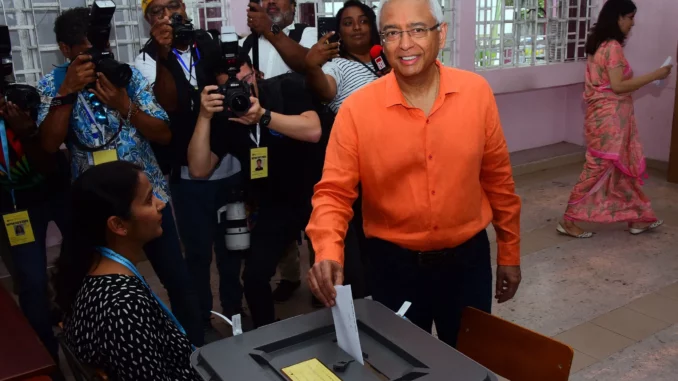
Mauritius has witnessed a historic political transformation as the opposition Alliance of Change secured a commanding victory in parliamentary elections, capturing 60 of 64 available seats. The dramatic result installs 77-year-old Navin Ramgoolam as prime minister, marking his third tenure leading the nation.
The election, despite occurring in one of Africa’s most stable democracies, faced controversy over a phone-tapping scandal involving leaked recordings of public figures. A brief social media ban implemented in response was quickly reversed following public outcry.
Former Prime Minister Pravind Jugnauth’s Lepep alliance suffered a decisive defeat, retaining only two parliamentary seats compared to their previous 42, while securing just 28 percent of the vote against the opposition’s 63 percent. The results triggered widespread celebrations in Port Louis as supporters anticipated new political direction.
Key campaign issues included cost-of-living concerns, governance reforms, and corruption allegations. Ramgoolam’s platform promised increased pensions, free transport and internet services, and reduced fuel costs. The election attracted approximately 80 percent voter turnout, reflecting strong public engagement.
This political shift coincides with significant international developments, including a historic agreement transferring UK sovereignty over the Chagos Islands to Mauritius. The new leadership faces immediate challenges in addressing economic concerns while maintaining the nation’s democratic stability.
